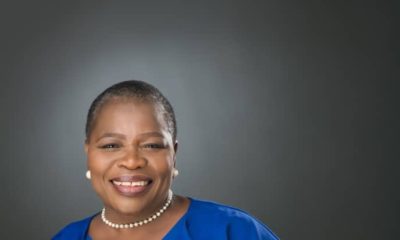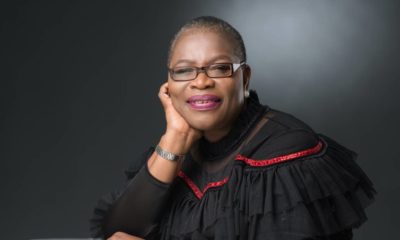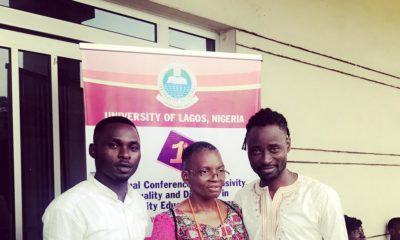News
‘It may take 60 years, but we have to start now’ Bisi Alimi opens up in The Guardian about LGBT rights in Nigeria

Gay Rights Activist Bisi Alimi was featured in The Guardian where he talks about how life was in Lagos back in 2004 after he came out as gay on National television.
He also shares his thoughts on the LGBT rights in Nigeria.
See excerpts below.
On being out in London: You get in the queue in front of G-A-Y or Heaven. You go in, party, and leave. Where’s the excitement? Being out in Lagos and going to underground parties is far more thrilling. We had this party that got broken into and many people got beaten up and soaked in blood. But the next week we were all back for the party, because life has got to go on.
On if Lagos has an openly gay nightlife: I wish. You would meet people through friends or at parties. When I left Nigeria, [the website] Gaydar was quite popular but it was very underground – people would go to an internet cafe and minimise the window if someone walked past.
On societal pressure to be “normal”: My longest relationship was for four years but we knew that it would only last until one of us found a woman to marry. The expectation is to conform, not to live happily with who you are. Some gay men and lesbian women in Nigeria marry each other – “everybody’s happy, everybody lives their separate lives” – or they continue their relationships after they’ve married someone of the opposite sex, but there’s nothing meaningful about it. That’s why in many places in Africa, sexual relationships between same-sex people are considered a game. You either lose or you win, and that is really very painful.
On Nigeria one day decriminalizing sexual orientation identity: Nigeria plays a huge role in terms of population, economy and politics. That’s why I still encourage the global community to look at the vital role Nigeria has to play in decriminalising sexual orientation and gender identity. I’m not saying that we will have the law by then, but we will be demanding for it. It’s going to take another five years to actually have that law, possibly another 10 or 15 years to have a law that would recognise lesbian, gay and bisexual rights, and then maybe another 20 years after that to have a same-sex marriage law. It’s not going to happen in the next 50 or 60 years, but we have to start now.
On religion : I think we need to ask: how do we make religion more loving, more accepting and more accommodating? I hope we can get to a position where religion is not the decider of the political agenda on the continent of Africa.























